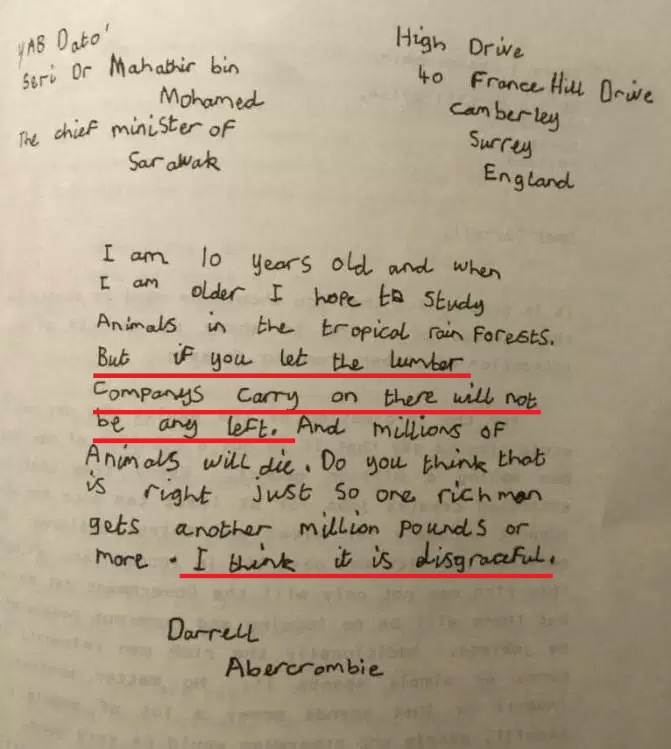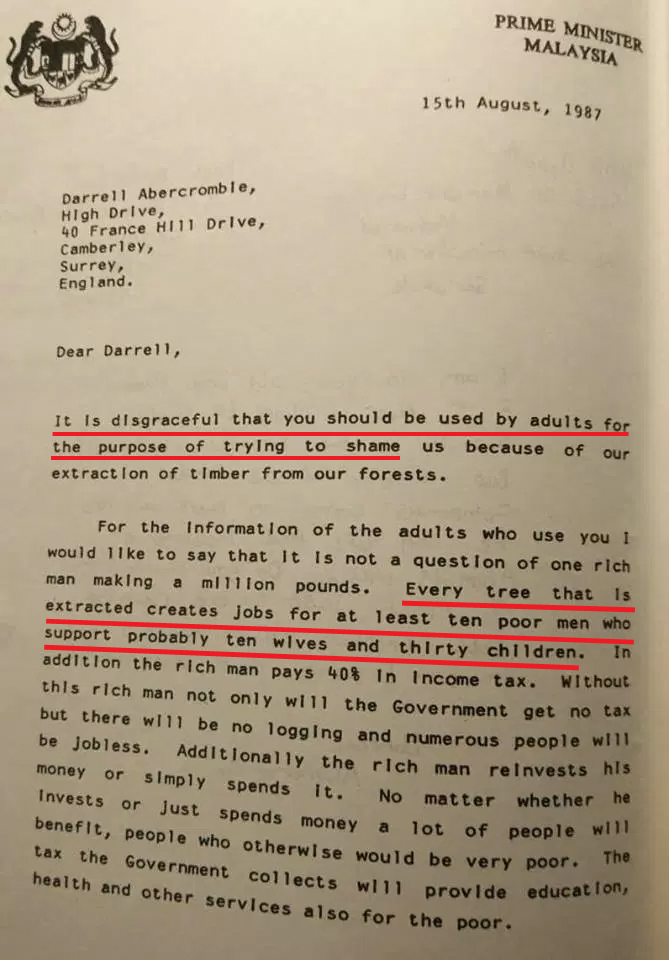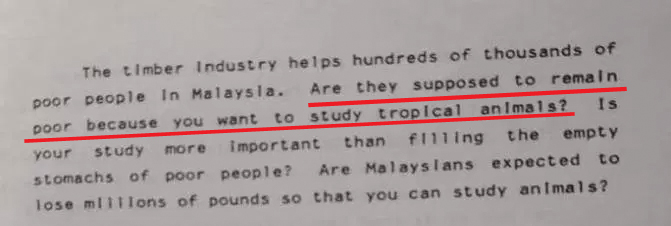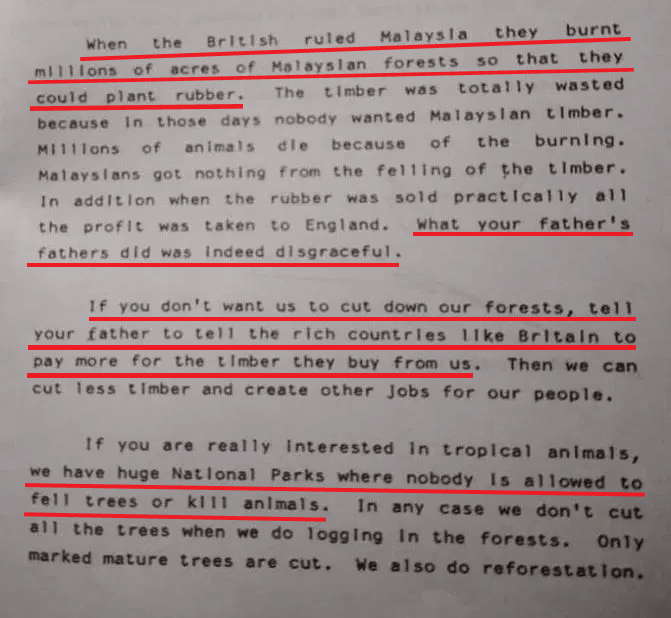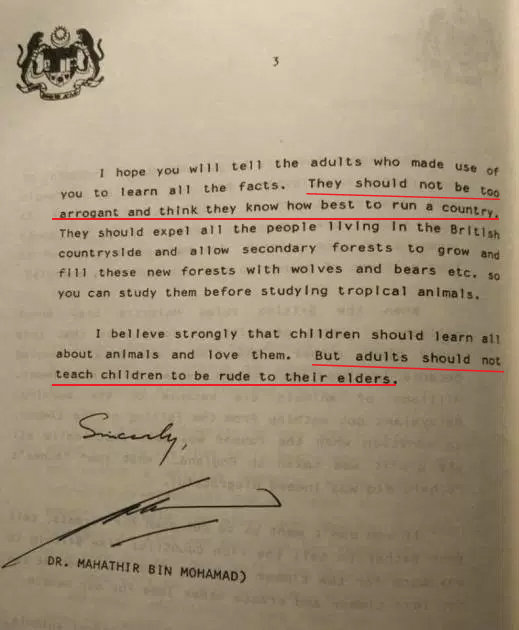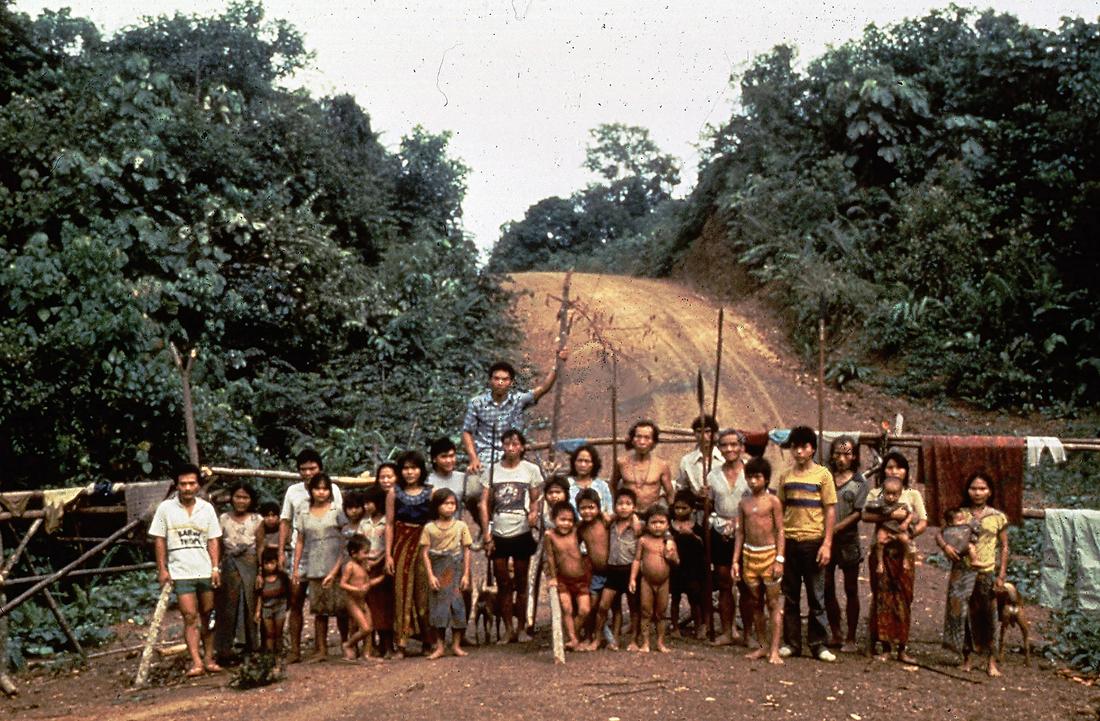Tun M's Reply To This 10-Year-Old's Letter Against Logging In 1987 Is Bada&$ AF
“Adults should not teach children to be rude to their elders.”
Tun Dr Mahathir Mohamad served as the Malaysian Prime Minister for 22 years from 1981–2003. A dominant and unique political icon of Malaysia, Dr Mahathir is also generally highly respected by the international community.
Dr Mahathir is known for his quick wit and a sharp tongue.
If anyone prefers a sweet-talking, punch-pulling and diplomatic politician, he or she will probably hate Dr Mahathir to the guts because Dr Mahathir was, and is, one of the most blunt and outspoken politicians in Malaysia.
So, when a letter that was written by a 10-year-old boy to Dr Mahathir in 1987 surfaced on social media recently, it got everyone's attention.
In that letter, the boy requested Dr M to stop the logging activities in Malaysia because he wanted to study animals in the tropical rainforests.
Darrell Abercrombie, a boy from England, wrote to the then Prime Minster of Malaysia, Dr Mahathir, to express his concerns about the logging activities in Malaysia.
Darrell mentioned that he hoped to study the animals in the tropical rainforests in the future but millions of animals were dying because the tropical rainforests were being destroyed by logging activities by the lumber companies.
"Do you think that (it) is right just so one rich man gets another million pounds or more?," he wrote.
He ended the letter by saying, "I think it is disgraceful."
"Every tree that is extracted creates job for at least ten poor men who support probably ten wives and thirty children."
Dr Mahathir started the letter by saying that "it is disgraceful" that Darrell, the then 10-year-old child, was being manipulated by adults who was trying to shame Malaysia for the logging activities in the country.
The former Prime Minister explained that these logging activities were not benefitting the rich, but in fact, they created job opportunities for the poor.
"Every tree that is extracted creates jobs for at least ten poor men who support probably ten wives and thirty children," he wrote.
He added that the rich was heavily taxed, which contributed to the government’s funds. He explained that these funds will then be used to provide the poor with education, health, and other services.
"Are they supposed to remain poor because you want to study tropical animals?"
Dr Mahathir continued his letter by stating that the timber industry has helped hundreds of thousands of people in Malaysia.
He went on to pose a few questions in his reply:
• Are they (Malaysians) supposed to remain poor because you want to study tropical animals?
• Is your study more important than filling the empty stomachs of poor people?
• Are Malaysians expected to lose millions of pounds so that you can study animals?
"What your father's fathers did was indeed disgraceful."
Dr Mahathir took the opportunity to highlight that in the past, the British had burnt millions of acres of Malaysians forests to plant rubber, causing millions of animals to die.
He added that “practically all the profits” from the sales of rubber was taken back to England, and what they did was “indeed disgraceful”.
He continued by writing, “If you don’t want to cut down our forests, tell your father to tell the rich countries like Britain to pay more for the timber they buy from us (Malaysia). Then we can cut less timber and create other jobs for our people.”
The then 62-year-old Dr Mahathir also suggested to Darrell to visit the National Parks in Malaysia if he was “really interested in tropical animals” because nobody is allowed to fell trees or kill animals there. He added that not all trees were cut down for logging and that there were ongoing reforestation efforts.
“Adults should not teach children to be rude to their elders.”
Dr Mahathir, who perhaps suspected that the letter was not sent by a boy at all, continued the letter by saying that he hoped that Darrell will tell the adults who used him to “learn all the facts”.
“They should not be too arrogant and think they know how best to run a country.”
He went on to say that “the adults” should clear the British countryside and allow secondary forests to grow and fill these new forests with animals so that Darrell can study them before studying tropical animals.
In his closing paragraph, Dr Mahathir said that he “believe strongly that children should learn all about animals and love them” but stressed that adults should not “teach children to be rude to their elders”.
Though it appears that Dr Mahathir gave an outstanding reply on the benefits of logging for the locals, but in fact, at that time, he was embroiled in controversy after the Sarawak state government passed the Forest (Amendment) Bill, 1987
The bill consisted mainly of two parts: the first provided the state with the power to revoke timber licenses if the licensees were to contravene any conditions imposed by the state in their licenses, including if such revocation was in the "interests of the public."
The second made in an offense for anyone to put up a barricade or any other obstruction that would prevent or deter logging activities. This part was clearly targeted at the native groups, whose blockades were perfectly legal and upheld by the courts.
In 1987, many Penan communities protested against the logging of their land by blockading the roads, but they were arrested by the authorities
Penan, a nomadic aboriginal people, has been battling to stop the destruction of their last remaining forests after large-scale commercial logging took place in Sarawak since the 1970s.
The Penan community rely completely on the forests for their survival and livelihood but it’s becoming almost impossible for the Penans to sustain themselves when the forests are being cleared for logging and oil palm plantations.
Unfortunately, until today, their land rights are not recognised by the Sarawak state government, robbing them of their means of survival.
However, as the years went by, the Penans have not given up, as they continue to resist and mount blockades against the logging companies till this very day.

